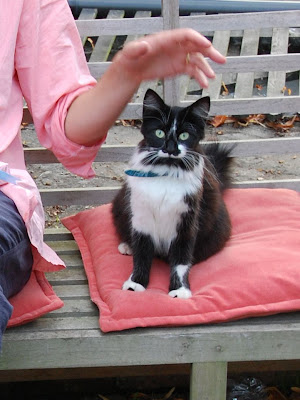 My friend Patrick Brooke included my email address in his "public service duty" round robin yesterday, asking recipients to pass it on. I'm afraid I usually bin this sort of request, but Patrick's message is a helpful one. He writes as follows:
My friend Patrick Brooke included my email address in his "public service duty" round robin yesterday, asking recipients to pass it on. I'm afraid I usually bin this sort of request, but Patrick's message is a helpful one. He writes as follows:Neurologists say that if they can get to a stroke victim within three hours, they can reverse the effects of a stroke – fully. The trick is getting a stroke recognized, diagnosed, and then getting the patient medically cared for within that three hours.
Sometimes the symptoms of a stroke are difficult to identify; and lack of awareness spells disaster. The victim may suffer severe brain damage when people nearby fail to recognize stroke symptoms.
A bystander can recognize a stroke by asking three simple questions:
S * Ask the individual to SMILE.
T * Ask them to TALK and SPEAK A SIMPLE SENTENCE (coherently) – "It's sunny today."
R * Ask them to RAISE BOTH ARMS.
If they have trouble with ANY ONE of these tasks, call 999 immediately and describe the symptoms.
In addition, you can ask possible stroke victims to stick out their tongue. If the tongue is crooked (that is if it goes to one side or the other), that is another indication of a stroke.
Against this, my photograph looks rather flippant: our son Edmund (33 today) stroking Tosca, his cat.



